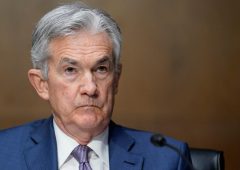Telegram Faces Potential Ban in India After Major Data Leak
20.09.2024 21:30 2 min. read Alexander Zdravkov
Telegram is facing potential restrictions in India following a significant data breach linked to the app.
The incident involved Star Health and Allied Insurance, the country’s largest health insurer, where sensitive customer information was exposed through chatbots on Telegram. This leak has intensified scrutiny of the platform, especially amid CEO Pavel Durov’s recent legal challenges in France.
According to a Reuters report, the cyberattack on Star Health, valued at over $4 billion, led to the theft of personal data, including names, phone numbers, addresses, tax information, and medical records. This information is now being offered for sale on Telegram, with chatbots even providing samples.
The health insurer has alerted local authorities regarding the breach, highlighting the chatbot operated by “xenZen,” which boasts of its resilience against takedown efforts.
READ MORE:

Will There be Other Rates Cuts by the Fed?
This breach is not an isolated incident; the Indian government has previously investigated Telegram for its role in extortion and gambling activities. The latest data leak may prompt the government to consider a ban on the app, depending on the outcomes of ongoing investigations.
The app’s legal troubles have been exacerbated by Durov’s recent arrest in France, which has raised alarms over Telegram’s involvement in illicit activities. Although he has since been released, Durov remains under judicial supervision. This situation has led to increasing regulatory pressure on Telegram from various countries, including India, France, and South Korea.
-
1
Trump’s 2024 Crypto Earnings Top $58 Million—DeFi Stake Drives Most of the Haul
16.06.2025 9:00 2 min. read -
2
Tether Now Among World’s Largest Holders of U.S. Treasuries, CEO Says
21.06.2025 9:00 1 min. read -
3
Big Funds Sell $51B in May, But Buybacks Cushion U.S. Stock Market
20.06.2025 10:00 2 min. read -
4
Canton Network Developer Secures $135M to Expand Institutional Blockchain Use
25.06.2025 12:00 1 min. read -
5
BlackRock’s Bitcoin ETF Now Out-Earning Its $624B S&P 500 Fund
03.07.2025 10:00 1 min. read
Here is Why the Fed May Cut Rates Earlier Than Expected, According to Goldman Sachs
Goldman Sachs now expects the Federal Reserve to begin cutting interest rates sooner than previously anticipated, forecasting the first reduction as early as September 2025.
Robinhood Faces Scrutiny from European Bank Over Tokenized Stock Offerings
Lithuania’s central bank has reached out to Robinhood for further details regarding its newly launched stock token products, following a public distancing by OpenAI from the initiative.
USA Imposes Tariffs on Multiple Countries: How the Crypto Market Could React
As President Trump accelerates his tariff strategy ahead of the August 1 deadline, new White House letters reveal formal trade warnings sent to multiple nations, including Tunisia, Cambodia, Indonesia, and others.
UAE Regulators Dismiss Toncoin Residency Rumors
United Arab Emirates authorities have formally denied reports linking Toncoin (TON) ownership or staking to long-term visa eligibility, calling the circulating claims inaccurate and misleading.
-
1
Trump’s 2024 Crypto Earnings Top $58 Million—DeFi Stake Drives Most of the Haul
16.06.2025 9:00 2 min. read -
2
Tether Now Among World’s Largest Holders of U.S. Treasuries, CEO Says
21.06.2025 9:00 1 min. read -
3
Big Funds Sell $51B in May, But Buybacks Cushion U.S. Stock Market
20.06.2025 10:00 2 min. read -
4
Canton Network Developer Secures $135M to Expand Institutional Blockchain Use
25.06.2025 12:00 1 min. read -
5
BlackRock’s Bitcoin ETF Now Out-Earning Its $624B S&P 500 Fund
03.07.2025 10:00 1 min. read

